I’m still feeling pretty melancholy over the sad news about Iain Banks’ health. What can you say? Congratulations on your engagement, my condolences on your cancer and thanks for the dark humor. You know what? I think I’m going to go with that last impulse; I think that is a fitting attitude, a winning tactic, the right kind of tribute. In fact, alright, here goes: eff yeah The Culture. The Culture novels are modern classics and should be required reading for anybody who likes science fiction. No, scratch that, for anybody, period. I see hand-wringing articles all the time about how science fiction has become the domain of anti-science fearmongering and dystopian fiction: well! Iain M. Banks’ writes the heck out of utopian sci-fi, and he does it with a wink in the face of nihilism, and it is wonderful. Let’s just take a moment to appreciate The Culture, because The Culture, and Iain Banks, are fantastic.
What is The Culture? There are two comparisons that I think really explain it. The Culture is like Star Trek’s Federation, flipped on its head. A hyper-advanced post-scarcity, post-Singularity human civilization. An anarchist collective that just works, where you can get anything you want, do anything you want. Tooling around the galaxy in spaceships with billions of people on them, run by the Minds. The Minds are…well, the post-Singularity bit. Humans build an AI and then that AI builds a better AI, and then later, rinse, repeat until the super-sentient computers are building their circuits in hyperspace because the speed of light was getting to be a drag on their processing power.
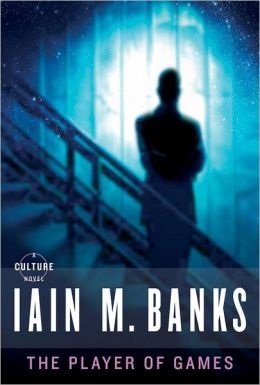 How is it like The Federation you ask? Oh, simple! They’ve got the Prime Directive, only turned inside out to make it their obligation to meddle with other societies. See, when you have a post-scarcity techno-utopia…why would you let some planet of aliens linger in their “nasty, brutish and short” phase? So Contact was born. Contact’s job is to introduce cultural ideas like freedom and responsibility, and introduce technology and new inventions without causing more problems than they solve. Mentorship, on a massive, species-wide scale. Most of Banks’ Culture novels involve a sub-set of Contact, called Special Circumstances. Because…well, sometimes you can’t make an omlette without breaking a few eggs. By which I mean you might have to assassinate a genocidal space alien Hitler, or undermine an oppressive political system, or…get your civilization’s greatest gambler to play high-stakes poker.
How is it like The Federation you ask? Oh, simple! They’ve got the Prime Directive, only turned inside out to make it their obligation to meddle with other societies. See, when you have a post-scarcity techno-utopia…why would you let some planet of aliens linger in their “nasty, brutish and short” phase? So Contact was born. Contact’s job is to introduce cultural ideas like freedom and responsibility, and introduce technology and new inventions without causing more problems than they solve. Mentorship, on a massive, species-wide scale. Most of Banks’ Culture novels involve a sub-set of Contact, called Special Circumstances. Because…well, sometimes you can’t make an omlette without breaking a few eggs. By which I mean you might have to assassinate a genocidal space alien Hitler, or undermine an oppressive political system, or…get your civilization’s greatest gambler to play high-stakes poker.
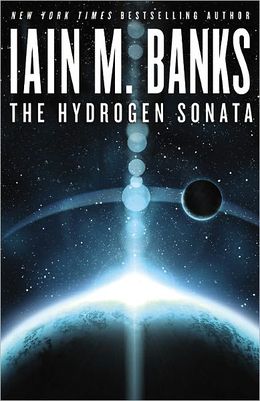 The other comparison I like to make is: The Culture is like what would happen if you took Douglas Adams’ Hitchhiker’s Guide to the Galaxy completely seriously. The Minds are really what sell this angle. The Minds’ attitudes show up in their names—Minds often being housed in ships—with monikers like Just Read The Instructions or We Haven’t Met But You’re A Great Fan Of Mine and warships with names like Falling Outside The Normal Moral Constraints and my personal favorite, Trade Surplus. They have a sublime sense of humor that can verge on the completely deranged…and the whole Culture really hangs on their fundamental benevolence. Asked in Science Fiction Weekly “…their outrageous names, their dangerous senses of humour. Is this what gods would actually be like?” Banks answered “If we’re lucky.”
The other comparison I like to make is: The Culture is like what would happen if you took Douglas Adams’ Hitchhiker’s Guide to the Galaxy completely seriously. The Minds are really what sell this angle. The Minds’ attitudes show up in their names—Minds often being housed in ships—with monikers like Just Read The Instructions or We Haven’t Met But You’re A Great Fan Of Mine and warships with names like Falling Outside The Normal Moral Constraints and my personal favorite, Trade Surplus. They have a sublime sense of humor that can verge on the completely deranged…and the whole Culture really hangs on their fundamental benevolence. Asked in Science Fiction Weekly “…their outrageous names, their dangerous senses of humour. Is this what gods would actually be like?” Banks answered “If we’re lucky.”
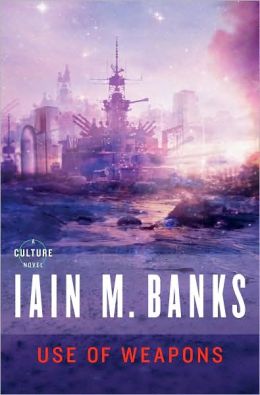 The thing is, for all of Banks’ spectacular robots and spaceships, his stories are about people and big ideas. In different doses; Use of Weapons, for instance, is a character portrait of a man struggling with a dark past and his unfortunate talent for being a great war hero, while Surface Detail is…about the ethics of Hell? Or video games? By which I mean, virtual simulations, and at what point having a simulation full of people being tortured and killed forever is an evil act. I should also point out that Surface Detail had me literally doing the proverbial “laugh out loud” while riding on a crowded train, on many occasions. Hydrogen Sonata is about a culture just on the cusp of post-post-Singularity, on the edge of post-reality, but even that big notion is tempered by the fact that it is really about a woman trying to figure her own stuff, and some heady cosmological stuff, out.
The thing is, for all of Banks’ spectacular robots and spaceships, his stories are about people and big ideas. In different doses; Use of Weapons, for instance, is a character portrait of a man struggling with a dark past and his unfortunate talent for being a great war hero, while Surface Detail is…about the ethics of Hell? Or video games? By which I mean, virtual simulations, and at what point having a simulation full of people being tortured and killed forever is an evil act. I should also point out that Surface Detail had me literally doing the proverbial “laugh out loud” while riding on a crowded train, on many occasions. Hydrogen Sonata is about a culture just on the cusp of post-post-Singularity, on the edge of post-reality, but even that big notion is tempered by the fact that it is really about a woman trying to figure her own stuff, and some heady cosmological stuff, out.
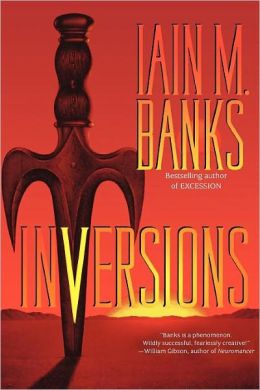 When you start to get the feel of just what makes The Culture tick, he mixes it up. Excession is about what happens when The Minds encounter…well, the monolith from 2001: A Space Odyssey, basically. Heck, the very first Culture novel, Consider Phlebas, is about a guy who hates The Culture! Inversions is…well, what if Iain Banks wrote a George R.R. Martin style fantasy novel, but all along Varys and Melisandre were actually members of a super-advanced alien civilization, trying to guide Westeros out of feudal shenanigans. The one I always recommend people start with, though, is Player of Games. The brief aside about pronouns in English and how he’s going to use “he” for the “third gender” aliens because they have an oppressive hierarchy and hey, English has an oppressive patriarchal syntax built right into it—magnificent.
When you start to get the feel of just what makes The Culture tick, he mixes it up. Excession is about what happens when The Minds encounter…well, the monolith from 2001: A Space Odyssey, basically. Heck, the very first Culture novel, Consider Phlebas, is about a guy who hates The Culture! Inversions is…well, what if Iain Banks wrote a George R.R. Martin style fantasy novel, but all along Varys and Melisandre were actually members of a super-advanced alien civilization, trying to guide Westeros out of feudal shenanigans. The one I always recommend people start with, though, is Player of Games. The brief aside about pronouns in English and how he’s going to use “he” for the “third gender” aliens because they have an oppressive hierarchy and hey, English has an oppressive patriarchal syntax built right into it—magnificent.
Banks has teeth. Just because they are stories about a utopia doesn’t mean that the stories he tells are conflict-less. They are rough and often tragic, because that is how life is. His universe is a cold and uncaring one…but that just highlights how important it is for people not to be. It is a good lesson in rational ethics. So thanks, Sun-Earther Iain El-Bonko Banks of North Queensferry. These Culture books are really fantastic.
Mordicai Knode thinks that remembering how awesome Iain M. Banks’ books are is the best way he can think of giving his best wishes.










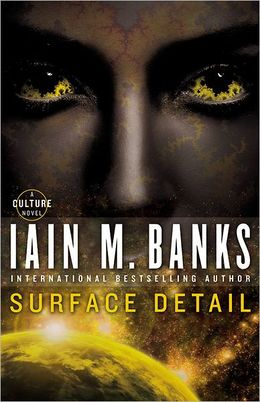
On hilarious Ship names; from Use Of Weapons – “The ship was over eighty kilomters long and called Size Doesn’t Matter.” That one made me laugh out loud.
I like how Banks handles the material of space opera. There’s the complete absence of imperialism or triumphalism or exceptionalism, just a sense that we can all get along. All the same, I’m glad that he kept the Culture an ambigous utopia and one where good intentions and flawless morality can still result in tragedy. Horza’s perspective in Consider Phlebas and the parallel timeline trick in Use of Weapons are example of the sort of thing that literary authors should bring to the genre.
Having Banks around made the whole of space opera a better place: he persuaded M. John Harrison to write Light (it’s like Banks but with large amounts of crushing ennui and quantum physics) and inspired a younger generation including Alastair Reynolds, though I don’t think that anyone captured his fundamentally playful tone. Ultimately, I will remember Banks as one of the few SF authors whose work holds up when compared with reality.
I always go with The Player of Games for the first introduction to the Culture too. It’s just about perfect for the purpose. And I’m pretty impressed by how deftly it taught me exactly how deniable systemic bias works without me even noticing at the time.
1. Eric Saveau
Yeah; whenever the Minds get up to their shenanigans I just think about how…well, how much sense Zaphod Beeblebrox would make as a Culture citizen. Which is…a lot.
2. SchuylerH
Exactly. I’m a big old optimist who thinks that reason & ethics can make the world a better place, even a utopian place…but I come from a place where I realize that entropy is driving the universe, that evolution is driven by extinction, that competition & murder are bred into all life. Banks doesn’t shrink from the messy details, he just says “yeah, & sometimes you need a spaceship made out of guns. But mostly what you need is a cogent ideology. & a spaceship made out of guns.”
3. chaosprime
The bit where he turns on the television & is like “oh no! This is just video of people murdering each other! Oh wait, that isn’t real, those are fake special effects making it look like people are murdering each other. WAIT THAT IS ALMOST WORSE, WHY WOULD YOU DO THAT?”
Grim laughter. An appropriate reaction.
The Culture books have lightness and darkness and all the shades in between. Humor and dark tragedy written against a fantastic galatic setting.
The Solipsist mercenaries from “Against a Dark Background” are a favorite bit of mine among many favorite bits.
I completely concur. I totally love the Culture novels, and each new one was a great event. My blog post on “The Hydrogen Sonata” was titled “A New Culture Novel!” and is embarassingly fanboy. So sorry there won’t be more of these.
http://portraitofthedumbass.blogspot.com/2013/01/a-new-culture-novel.html
Sigh- I’ve not yet read one of Banks’ novels, but all I read is making me want to do so.
Okay, I’m sold.
I’m kinda surprised I haven’t read him yet. That will change!
5. stevenhalter
I haven’t read the non-novel Culture stuff; I’ve been saving it for a rainy day. Which, I’m sad to say, seems like a smart play, in retrospect.
6. chris heinz
&
8. Nine
&
9. drownedworld
Yeah, this is something to get on! They are great reads; they aren’t even intimidating tomes; you can just dive right in.
Right? They are totally books to fan out about, because they totally get it. While, you know, being totally awesome, as books.
7. Pam Adams
If only he hadn’t said what he said about Israel. Anyways, since I am throat-deep into sci-fi and fantasy my next one will be
‘Consider Phlebas’, ‘cos its something that applies to me.
I was just thinking about how, although we call them The Culture novels, they’re always about the outliers, or non culture citizens, and then I realised that we will never see a book about the Culture itself.
:(
I’ve only read 2 Culture books and I thought they were great. Non-Culture-wise (UnCultured?) Wasp Factory is probably going to be a classic for the goth set for decades to come.
Great appreciation for a great author, Mordicai.
@11 arzvi’s comment on Israel – NCNC, anyone? – lead me to do a search on Iain Banks and Israel, and this is part of what he said:
from:http://www.guardian.co.uk/books/2013/apr/05/iain-banks-cultural-boycott-israel
He is consistent. That is the ethics that informs his works, or at least the Culture novels I’ve read.
11. arzvi
&
14. Sly Drool Rockworm
I don’t want to get too side-tracked into talking about the issue of Israel here in the Tor.com science fiction & fantasy blog, though– it is a pretty charged political topic, you know?
Another fan, another guy crushed by this awful set of news.
What I most like of his Culture books is that even if he is writing an utopia, even if the Culture are the good guys, almost all of his stories are in a great deal tragedies, and manage to shade an ambiguous light on the whole situation. But as Mordicai said, always, always, spitting in the face of nihilism. The course may not be sure. You may be commiting a mistake in your “help” of others. The implications of an “inverse Prime Directive” can be very dark. But is the burden to carry for being a sentient being with a desire for a better world in an uncaring universe – you just have to keep asking yourself all the time if you are doing the right thing.
And, in some strange way, his last Culture book is strangely fitting to his current situation.
I’ve been thinking about exploring his non-SF side, but I have the clear and urgent desire to revisit all his SF books again and look for all the nuances I missed.
We are going to lose a great master of the genre.
I found Banks through my favorite sf author, Richard Morgan, who recommended him. My first introduction was Matter, and though others didn’t like it so much (they said it was too much like some of his other books), it had a profound impact on me and is still one of my favorites, along with Consider Phlebas.
This is very sad news. Just finished “The Algebraist” which, if we were voting, would get mine.
Use of Weapons. Absolutely. Style, execution, structure all brilliant. Delicious manipulation of the reader’s expectations and their relationship with the characters. You’ll never look at a white chair the same way again.
16. Latro
Plus a Gene Wolfe fan; you’ve got good taste all around. Anyhow, I guess I’m trying to focus on “we GOT a master of the genre” rather than that we’ll loose him. Like you I haven’t read his more literary stuff (literary as a genre, not as a value judgement, obviously) but I’ll get to it, for sure.
17. Linda P
&
18. psyktek
&
19. Migraine
Yeah, I don’t know if people have agreed on a “best” Culture novel, have they? Just personal favorites; like I said, mine is Surface Detail!
Finished Consider Phlebas in February (blown away!) and am rushing to finish the last 100 pages of KSR’s 2312 so I can get to Player of Games.
My Book Club, WimbledonBookClub.com, have just finished The Player of Games and the book was unanimously praised. An excellent starting place to delve into the muddy moral waters of The Culture.
23. Gerard Earley
Just checked out your book club’s page– bangin’!
I’ll miss him dearly. Like many have already stated here, I have read all of his work and greatly anticipated anything new on the horizon. The Culture series especially (although all of his work has the same Banks shine). He is one of the greatest science fiction writers of all time in my opinion and his fans will be many long after he (and you, and I) are long gone. Thanks Iain.
The BBC is reporting that Iain Banks has just died.
26. SchuylerH
Thanks for the update, SchuylerH. Sad news indeed.
The word “later” in the last sentence of para. 2 should be “lather”, as in “lather, rinse, repeat”